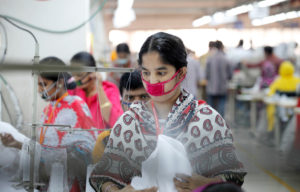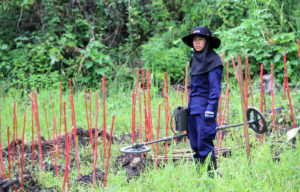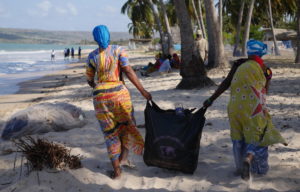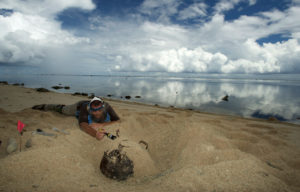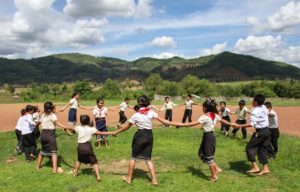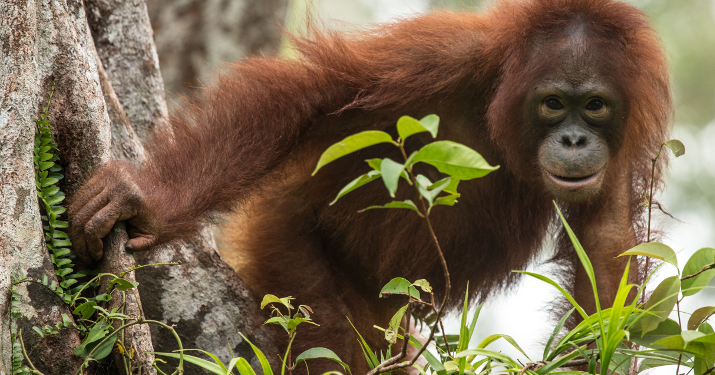
Orangutans take back their forest
Since 2012, the rehabilitation centre Nyaru Menteng has been resettling orangutans in areas of pristine rainforest in the Indonesian part of the island of Borneo.
Share
Working to save the orangutan
- 80 percent of the original habitat of the orangutan has been destroyed in the past three decades.
- Today, orangutans are only found in the wild on the islands of Sumatra and Borneo, and the species is classified as threatened.
- As of 2014, 11.3 percent of the population of Indonesia remain under the poverty line.
- Save the Orangutan works to both save, rehabilitate, and re-release orangutans, as well as to protect rainforest.
- Nyaru Menteng was founded by a Dane, Lone Dröscher Nielsen, in 1999.
Source: Save the Orangutan NGO
Other categories
So far, 136 orangutans have returned to freedom. When Nyaru Menteng resettles orangutan number 300 within the next couple of years, Borneo will have gained a new population of wild orangutans which will be big enough to survive in the long term. That is good news, and not only for the endangered orangutan. The work to save the animals is also increasing the standard of living for the most marginalised groups of people on Borneo.
Lost forest means lost livelihoods
In just 60 years, half of the population of orangutans has disappeared, due to clearing of rainforest. As the forest disappears, the nomads, small-scale farmers, and fishermen of Borneo also lose their livelihoods. Without forest and with polluted rivers, these groups are left without any other choice than to make a living by supporting the very industry that destroyed their way of life.
Project breaks vicious circle
“It’s a vicious circle”, explains Marie Sigvardt, project leader in the organisation Save the Orangutan. “But luckily, we have made results in cooperation with local partner organisations, and this shows that it’s indeed possible to break this circle”.
Save the Orangutan finances the rehabilitation centre Nyaru Menteng, and the issue of capacity building in marginalised villages is very important:
“We cannot protect the orangutans without cooperating with the local communities”, explains Denny Kurniwan, the daily leader of the centre. “The orangutans need the forest, and so do the villagers”.
Rehabilitation centre creates jobs
Since 1990, Nyaru Menteng has saved more than thousand homeless orangutans from starving to death, being captured and sold as pets, or being butchered. The centre employs nearly 190 people, and virtually every employee is local. 171 employees have been recruited from the area right next to the centre. This improves the standard of living of local villages, and at the same time, the employees become ambassadors for the orangutans. Such ambassadors are sorely needed: “There’s a lack of awareness about the endangered status of the orangutans, and this is a big challenge. Poverty has driven people to only consider what is best for themselves in the short term, and this makes it difficult for us to encourage people to consider protecting the orangutans and their habitat”, explains Denny Kurnivan.
Sustainability and growth
Nyaru Menteng supports the development of a sustainable agricultural programme, together with local community groups in the area around the centre. It’s in the best interests of the community to keep good relations with the centre, as Nyaru Menteng buys more than eight tonnes of fruit from local producers every week. In addition, the centre has contributed to establish local councils that bring together various groups and authorities, to discuss the sustainable development of the local area.
Freedom for apes, wealth for people
Since 2012, Nyaru Menteng has been reintroducing grown orangutans in areas of protected forest, and no one knows the forest of Bukit Batikap better than the locals from the villages that border the 350 square kilometres of woodlands. For this reason, it’s an obvious choice to offer the local people employment in order to gather data about the released orangutans. The centre has also taken initiative to start up sustainable cultivation of mushrooms in the villages, and helps employees get personal identification cards that will give them opportunities for education, medical attention, and other privileges, that most of us take for granted.
“When we work to develop the communities, it’s both in order to increase the standard of living for the villagers, and to create awareness about environmental issues. We want to change the idea that the forest is nothing but a resource for humans to exploit, and instead make room for orangutans and other unique species of the rainforest. We do that best by also acknowledging the needs of human beings”, Denny Kurniwan concludes.
